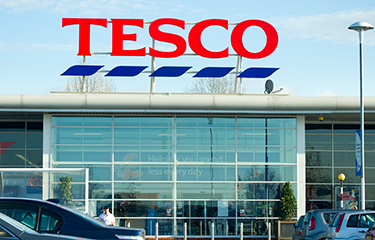U.K.-based grocery chain Tesco has published the results of its first independent bycatch audit, which found significant risks in a number of its key source fisheries.
Consisting of a review and risk assessment, the audit was completed by marine conservation organization Sustainable Fisheries Partnership (SFP) in partnership with Whale and Dolphin Conservation and the Royal Society for the Protection of Birds.
The audit examined threats to sharks and rays, seabirds, marine mammals, and sea turtles in the main fisheries that supply seafood to Tesco. It identified the following high potential bycatch risks:
- Tuna fisheries utilizing longlines and purse-seine gears utilizing fish-aggregating devices pose a significant risk to sharks and rays, seabirds (longline), sea turtles (longline), and marine mammals (purse-seine).
- Alaskan salmon set/drift gillnet fisheries pose a significant risk to seabirds.
- Argentine shrimp and Indonesian prawn fisheries pose a significant risk to sea turtles.
- Icelandic cod gillnet fisheries pose a significant risk to seabirds and marine mammals.
- Canadian lobster pot and trap fisheries pose a risk to marine mammals.
Tesco Head of Environment Anna Turrell said reducing fishery bycatch is a vital element of the retailer’s ecosystem-based approach to promote healthy fish stocks and mitigating the impacts of fishing on the wider marine environment.
“This report is an important step on that journey, and we’re already working with our suppliers to take action on the issues raised, including implementing 100 percent observer coverage on vessels in our supply chain,” she said.
As well as improving at-sea monitoring and pressing for measures to stop bycatch, especially in tuna longline fisheries, Tesco is working with suppliers who use gillnets to investigate their potential removal. Where removal is currently unfeasible, Tesco wants fisheries to introduce mitigation measures as soon as possible.
The retailer already doesn’t buy tuna caught using fish-agreggating devices, and is a member of the Global Tuna Alliance (GTA), an organization working to ensure the tuna sector adheres to high standards of environmental performance and social responsibility.
Audits are a key part of SFP’s Protecting Ocean Wildlife initiative, which seeks to engage retailers, seafood industry, and the seafood supply chain to reduce marine wildlife bycatch in fisheries worldwide, especially endangered, threatened, and protected species. Tesco joined SFP as an early partner on the initiative.
“As a result of the audit, Tesco can prioritize areas for change and use it as an example to encourage other retailers to take similar action to protect ocean wildlife through their sourcing practices,” SFP Global Markets Director Ian Rolmanis said.
The audit provided Tesco with recommendations that it can pursue with its suppliers across various fisheries, including:
- Higher levels of observer coverage to improve levels of bycatch monitoring, which are currently poor in general;
- Better bycatch incident reporting, which should be regular, detailed, and standardized;
- Ensuring bycatch data is placed in the public domain and available to all stakeholders;
- Bycatch prevention and mitigation should aim to adopt, advance, and innovate new and best practices at all times;
- Performing a systematic examination of alternative gear options in fisheries where there are high bycatch risks.
Photo courtesy of JuliusKielaitis/Shutterstock







